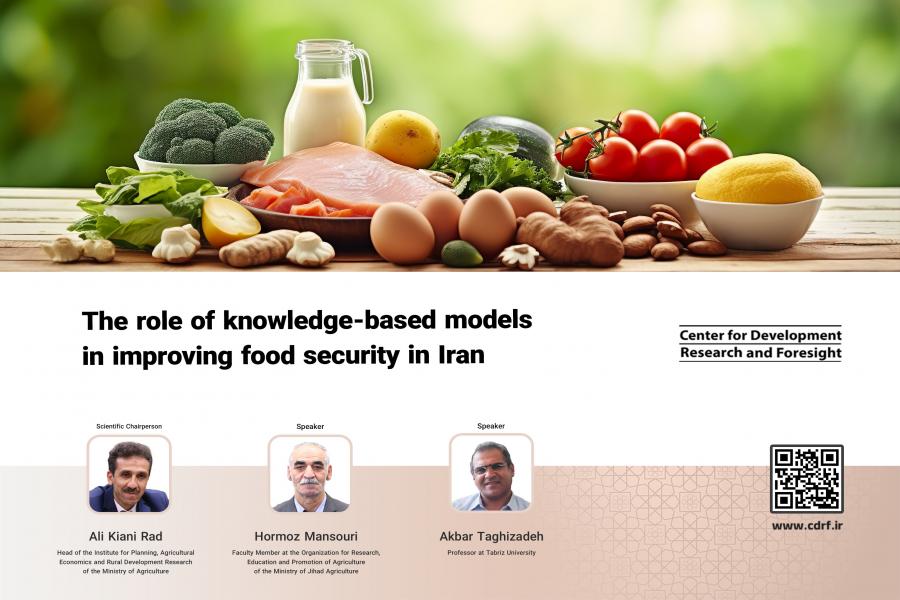
-
بررسی آییننامهها و دستورالعملهای برنامه هفتم پیشرفت
-
بررسی عوامل موثر بر افزایش تصادفات و تلفات جادهای و سوانح رانندگی و دادهکاوی تلفات انسانی
-
سازماندهی و بازآرایی فضایی آموزش عالی کشور
-
به روز رسانی سند ملی آمایش سرزمین
-
انجام مطالعات مناطق آزاد به عنوان نواحی پیشران اقتصادی کشور
-
اصلاح ساختار بودجه و پیاده سازی نظام یکپارچه مدیریت اطلاعات مالی دولت (IFMIS)

The conference titled “The Role of Knowledge-Based Models in Improving Food Security in Iran” at the Center for Development Research and Foresight brought together experts to discuss the critical issue of food security in the country. The conference highlighted the challenges facing Iran's agricultural sector and explored potential solutions.
One of the key concerns raised by experts was the country's reliance on imported livestock feed. Hormoz Mansouri, a member of the scientific staff of the Organization for Research, Education and Promotion of Agriculture, noted that Iran imports a significant amount of its livestock feed, despite having the potential to produce it domestically. This dependence on imports makes Iran vulnerable to fluctuations in global food prices and supply chains.
Experts also emphasized the importance of improving water efficiency in the agricultural sector. Akbar Taghizadeh, a professor at Tabriz University, pointed out that Iran has limited water resources, and inefficient irrigation practices are contributing to water waste. He called for the adoption of modern irrigation methods and the use of agricultural waste to improve water efficiency.
The conference also addressed the issue of food waste, with experts estimating that around 30% of agricultural production in Iran is wasted. Mansouri stressed the need for better post-harvest handling and storage facilities to reduce food waste.
In addition to these challenges, the conference also discussed potential solutions to improve food security in Iran. Experts highlighted the importance of investing in research and development in the agricultural sector. Ali Kiani Rad, the head of the Institute for Planning, Agricultural Economics and Rural Development Research, emphasized the need for innovation and knowledge-based solutions to address the challenges facing Iranian agriculture.
The conference also underscored the role of universities and knowledge-based companies in developing sustainable agricultural practices. Taghizadeh shared his experiences in using agricultural waste to produce livestock feed, demonstrating the potential of such innovative solutions to improve food security.
Overall, this conference on Agricultural Economics and Development provided a valuable platform for discussing the challenges and opportunities related to food security in Iran. The conference's emphasis on innovation, efficiency, and knowledge-based solutions offers hope for a more secure and sustainable food future for the country.



